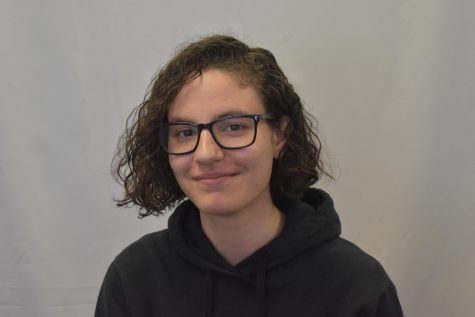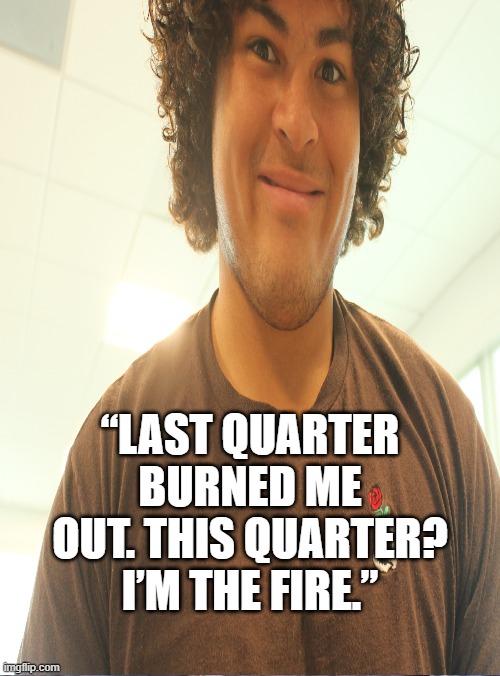HOPE-less?
April 4, 2018
Physical fitness, despite it feeling like an unnecessary chore for some, is undoubtedly incredibly important when it comes to leading a healthy lifestyle. Though it is exhausting, and in some cases exhilarating, one’s persistence to stay relatively fit eventually pays off in the long run in addition to having many short-term benefits; your mental health and overall mood improve, the risk of cardiovascular disease decreases, your chances of living longer increase to an extent, among many others.
With physical fitness holding a plethora of perks, it’d be safe to assume that schools would find some way to integrate it into the hefty schedules of the students. The state of Florida, seeing the effects of physical activity, decided to require high school students to obtain a credit in physical education in order to graduate. Additionally, for graduating classes of 2011 and 2012 for example, physical education was to be taken with “the integration of health.” Eventually, a decision was made to create a curriculum that combines the two. Thus, a program teaching both health and physical education was created.
Health Opportunities through Physical Education, more commonly known as HOPE, is a course designed to educate students in health and physical fitness that is required by the state of Florida to graduate high school. While most schools have and offer the course, Marco Island Academy does not. Seeing as the course is a graduation requirement, it’s quite strange to see a school not offering it to the student body. Why would a school not offer its students at least the bare minimum to graduate? For Marco Island Academy, an answer lies in its not-so-distant-past. In fact, the school once offered HOPE to students, though the class was shut down a few years ago.
When the school opened in August of 2011, it was located in the family church at Winterberry and had access to some fields such as Winterberry Park, which was located right across the street. With the consent of the students and parents (through permission slips), the more athletically inclined portion of the class could be somewhat satisfied and the health portion would be done in a classroom setting.
Marco Island Academy’s former Dean of Students and Athletics Director took over the HOPE course the following year when the school moved to its current location. As a result, it became much more difficult to complete a large segment of the course due to lack of proper facilities. In an attempt to temporarily solve such problems, students would run loops around the parking lot and would do pushups, situps, etc., in a grassy area that is now the teacher parking lot. They were able to continue the health section of the course, however, with minimal problems. Both the teachers and the administrators viewed this system as a safety risk and, after much thought, it was decided that HOPE would no longer be offered at MIA.
Nowadays, students are forced to look for other means of completing their HOPE requirement with desperation in order to graduate. After much thought, the administration decided to marry Florida’s FLVS requirement with the HOPE requirement, therefore urging students to take the class online.
While taking HOPE on FLVS isn’t a bad solution, it is quite a hassle. A majority of students have jobs, sports, and other extracurricular activities to deal with once the dismissing bell rings at the end of the day. On top of all this, students also have hours worth of homework to complete, family to spend time with, among other personal things to handle. Most students, believe it or not, also have some sort of social life and do like to go out every once in a blue moon when the opportunity presents itself. That being said, students are already drowning in work and responsibilities when out of school as it is, and throwing on yet another responsibility such as HOPE/FLVS is just too much. Many students really do not want to deal with another class after school in addition to all of the assignments that come with it; we’ve got enough on our plates as it is.
With all things considered, some students don’t bother taking the HOPE/FLVS course because they simply don’t want to deal with it or don’t have the time after school to commit to it. Some wait until their senior year to complete the requirements, therefore posing the issue of being held back from graduation if they fail to complete the course by their given deadline. Such wouldn’t be an issue if the school were to offer the course on the course selection sheet, since the students would be able to do the course during school and wouldn’t have as much homework as they would if they were throwing the course on top of the 8 they already have. Instead, the class could be complete in school instead of on their own time and they’d only have 3 other classes to worry about as opposed to 4 (since the class would only be held for one semester instead of taking two semesters to complete on FLVS). In summary, taking the class in school would lessen the workload on the students and they’d be more likely to get it done in time if it were offered as a course at school.
The problem doesn’t solely lie in the student’s workload, however. The problem is also present in the course itself. The FLVS class for HOPE requires little written or recorded evidence to prove that you’re actually doing the physical activities it’s asking you to do. In other words, students can straight up lie about their completion of the activities, which completely defeats the purpose of having a PE class. For the health portion, there’s not too much a student can lie on, but for the PE portion, the student can sit at home and hardly do anything and still get full credit. Not only does this show the students that they can get away with lying on schoolwork, but the students also aren’t reaping the physical benefits that a PE class offers. Having a HOPE class in-school would prevent students from skipping out on the physical part of the class and would promote honesty when it comes to class completion.
It’s been argued by a few students and staff alike that we shouldn’t offer HOPE because we lack the proper facilities to host the physical portion of the class. They are, in a sense, right; our school is just a bunch of modulars connected by a small boardwalk (it’s not our fault, though. It’s not like we’re adequately funded anyway). There are, however, ways to work around such a disadvantage. In fact, we do have a class that somewhat resembles a PE class – Weight Training.
Something that seriously confuses me is why we can host a weight training class, which sometimes leaves campus to complete some of their activities, but not the PE part of the HOPE class. Why can’t we leave campus just as weight training does to do some of the required activities? It’s been said that HOPE is too much of a “cookie cutter” class to turn weight training into HOPE, but that’s something that can also be worked around; we’d just have to change up the activities to mirror what’s required for HOPE. We’d be losing the Weight Training class, sure, but we’d be replacing it with something that’s actually required for us to graduate. Isn’t it the job of a school to supply the necessities to graduate, anyway?







